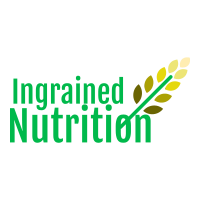What is Keto?
The ketogenic diet was originally developed as a treatment for epilepsy, in some types of epilepsy it can work effectively. More recently this diet has been adopted for weight loss, with the mechanism involved the body converting fat into ketones to use as energy instead of carbohydrates, which are the bodies preferred source of energy.
How it is done
If you are considering this diet it is best to work with a dietitian who will ensure it is being done currently and meeting your nutritional needs, your dietitian will determine whether this diet is the right diet for you and may steer you in another direction. A dietitian will write you a meal plan and use nutritional analysis software to calculate your macronutrient needs. The diet involves a macronutrient ratio of around 10% or less carb, 30% protein and 60% fat.
You still need to be in an energy deficit like any weight loss plan, If you go overboard with your kilojoules which can easily occur due to the high kilojoule amount per gram of fat you will not lose weight.
If You eat too much protein of carbs you will not enter a state of ketosis, however if you are still in an energy deficit you may lose weight.
Nutritional Considerations and Pitfalls
- There is no long-term evidence that this diet works, in fact the current evidence for the keto diet is the same in terms of long-term success as other fad diets.
- Consistency is the key to long term success; however, consistency can be difficult to achieve due to the restrictive nature of the diet
- This diet is low in fiber, which may lead to constipation and other gut issues. There may also be an increased risk of kidney stones and osteoporosis.
- Possible nutrient deficiencies include folate, iodine, fiber and a few other vitamins and minerals commonly found in grain products
- Possible side effects of the diet include flu-like symptoms, brain for, difficulty concentrating, body odour, nausea, fatigue.
- Saturated fat intake often is increased with people opting for lots of coconut oils, butter and bacon which may put your heart health at risk.
Potential Positive Effects
A reduced level of hunger in ketosis is often reported due to the high fat content and the hunger reducing role of ketone bodies, this diet also promotes fat loss rather than lean muscle mass.
Do I Recommend This Diet?
Never have I recommended this diet to my clients, I firmly believe the cons outweigh the pro’s. However if a client is adamant they want to do this diet and they are seeking help to do it correctly than I will absolutely help them to ensure it is done correctly (If I cannot steer them in another direction!)
By Caitlin Mannion,Accredited Practising Dietitian




